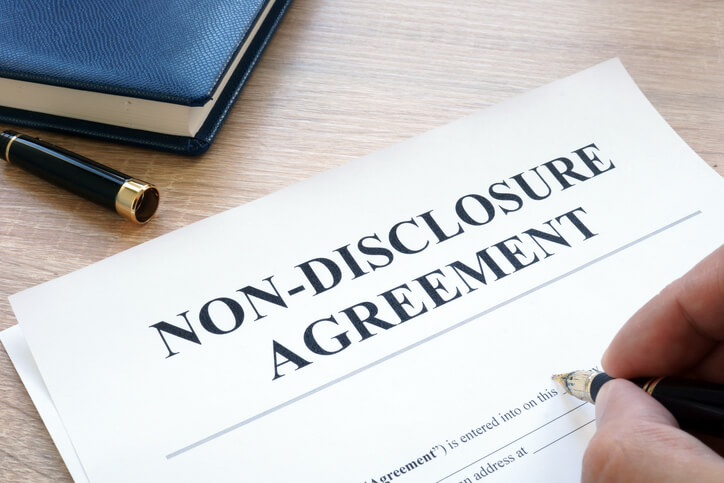
Buying or selling a business often means sharing highly sensitive information, including financial statements, customer data and operational details. Before those discussions take place, both sides need a clear agreement that protects confidentiality and sets expectations.
A Non-Disclosure Agreement (NDA) provides that protection. It defines how sensitive information can be shared and used during negotiations, giving both parties the confidence to move forward and have open, productive conversations.
What is a Non-Disclosure Agreement (NDA)?
A Non-Disclosure Agreement is a legally binding contract that keeps sensitive information private. It’s signed by two or more parties before any in-depth conversations or document sharing begin.
In the context of buying or selling a business, an NDA ensures that anything disclosed during negotiations stays between the parties involved. The person receiving the information agrees not to share it with anyone else without permission.
Why NDAs Are Important
NDAs are a common and essential part of the buying and selling process. Here’s why they matter:
- Protects sensitive information: Financial statements, customer lists and trade secrets remain secure.
- Builds trust: Sellers feel more comfortable sharing details when they know buyers will keep them private.
- Prevents disruption: If word gets out that a business is for sale, it can unsettle employees, customers and suppliers.
- Provides legal protection: If confidential information is shared improperly, the NDA gives the harmed party a clear path for legal recourse.
Key Elements of an NDA
While the details vary from one agreement to another, most NDAs include:
- Definition of confidential information: Explains exactly what data is protected.
- Permitted use: Clarifies how the information can and cannot be used.
- Duration: Sets how long confidentiality must be maintained.
- Exclusions: Lists what information is not considered confidential, such as public data.
- Consequences of breach: Outlines what happens if someone violates the agreement.
When to Use an NDA
In most business transactions, an NDA is signed before any sensitive information changes hands. Examples include:
- Reviewing detailed financial statements
- Accessing customer or supplier lists
- Starting due diligence
Even if a deal doesn’t move forward, the NDA ensures that the information you reviewed stays private. If you’d like a deeper look at why confidentiality is so important, read our blog post on The Importance of Confidentiality.
Final Thoughts
If you’re buying or selling a business, signing an NDA is an essential first step. It protects confidential information, builds trust and creates a secure environment for negotiations. Before signing, it’s a good idea to have an attorney review the document so you understand exactly what you’re agreeing to.
Ready to see what’s out there?
On BusinessBroker.net, you can browse thousands of listings, connect directly with sellers and find local brokers who can guide you through the process.
Browse businesses for sale in your area and take the first step toward owning your future today.
